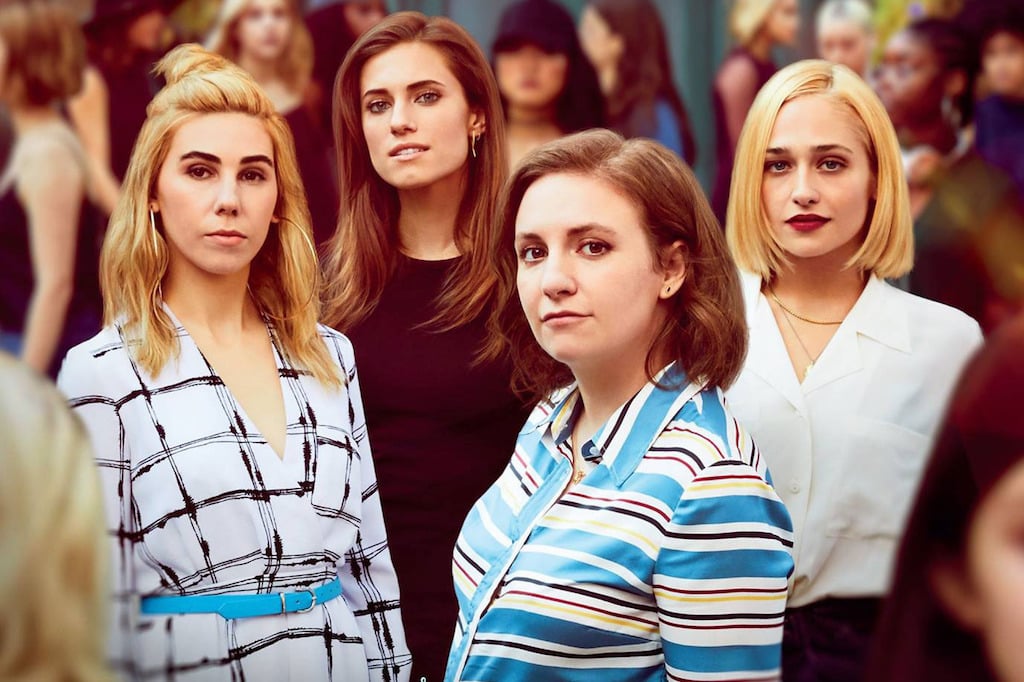“You’ve Got This”: A Reflection On The Quiet, Messy Legacy Of ‘Girls’
Did Girls have a final message for its fans (and critics)?
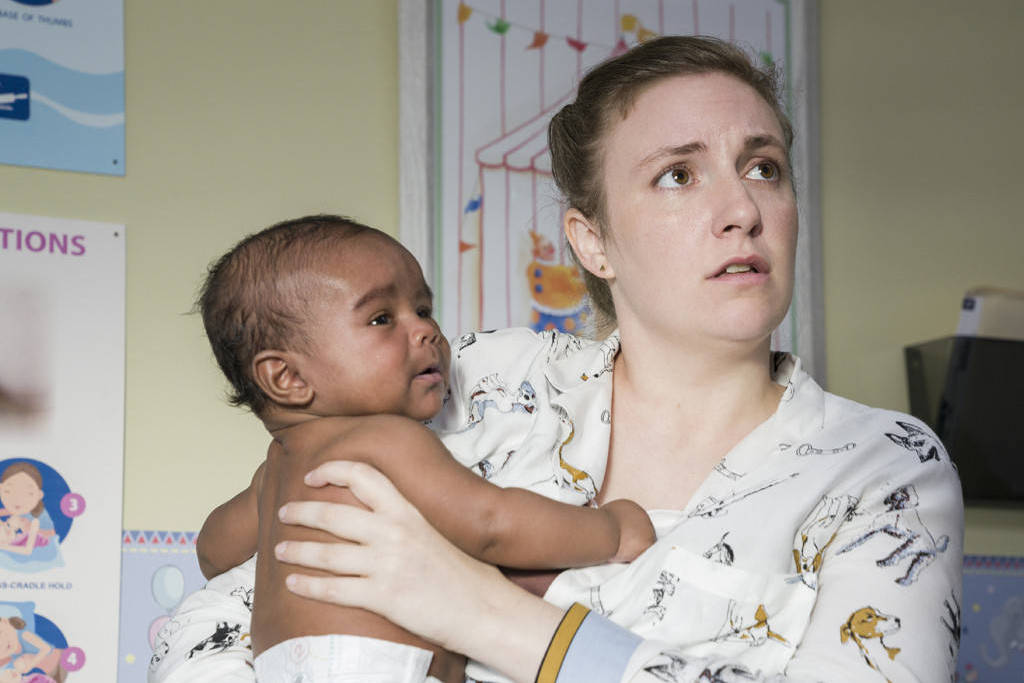
Spoilers for Girls!
–
Tracy Chapman’s ‘Fast Car’ has been about escape for two or three generations of young people now. To a teenager in a small town or a lost 20-something, its wistful little guitar lick, the soar of the chorus and the dogged optimism all sounds and feels romantic and hopeful. It conjures up that one powerful image: of a city at night and wind in your hair and knowing you don’t have to go it alone.
That promise of escape hits as hard no matter what you think you’re escaping from, or whether it’s actually as bad as it feels in the greater scheme of things. It doesn’t feel like a sad song, unless you’re paying attention. Last year two different and entirely nugatory tropical house covers of the song even became feel-good chart hits. It’s easy to elide the parts of the song where Chapman’s protagonist escapes into a new kind of prison.
A somewhat similar thing has happened with Girls over its six-year run. So many people believe it’s a certain type of show — one that celebrates characters who are self-indulgent, whiny, cringeworthy, without critiquing their privilege. And it has rewarded and been all of those things at times, but so much of the commentary has ignored its most effective mode: sly, savage and extremely funny satire of self-involvement and millennial entitlement.
It is funny that the entire premise of the pilot and the show from then on is that Hannah’s parents cut her off and she is horrified and indignant. It is funny that Marnie tried to have a singing career and failed while realising that she can’t just coast on being hot. It is funny that Shosh spent half a decade yelling at these women about how shitty they were being and it took her all those years to actually just stop hanging out with them. They are bright young women who have been told that the world is their oyster and are shocked to discover that said oyster is not being brought directly to them with five of its buddies nestled on rock salt by a hot waiter, and it’s funny to watch them work this out. Excruciatingly so. It’s sometimes so funny you forget to laugh.
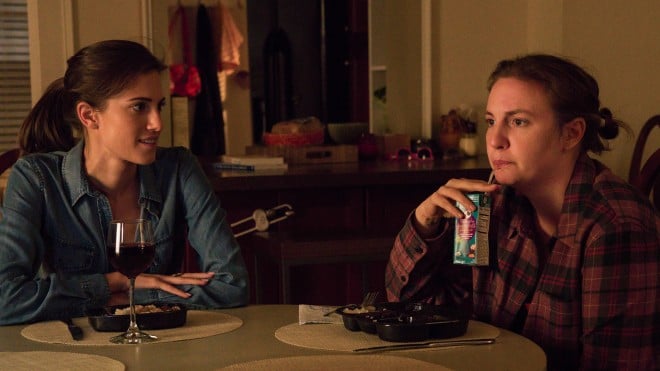
Comedy!
And it’s not a character or intellectual failing to not like a show, for crap’s sake. These characters can be grating and oblivious — particularly to those who don’t find stories about well-off white girls getting their egos bruised particularly entertaining — and the storytelling opaque and meandering. But those who gave up on Girls have been missing out on some of the sharpest writing and most unflinching emotional twists of any TV show this decade — particularly in the last two seasons.
Many a twenty-something, while fretting over a late period or broken condom, has idly or half-jokingly had the thought: “At least a baby would force me to get my shit together, and really, how hard could it be?” To her credit, Hannah Horvath hasn’t at any point in this season suggested that continuing her accidental pregnancy is some kind of strategy to point her life in a certain direction to (say it with me) help her become who she is.
Her explanations to her mother and to Adam have been simple and based on her gut feeling: this is my baby, I’m ready, it’s happening. She decided to have a child alongside her career rather than instead of or despite it, to fold him into where her life was already going, not to distract or divert her path or to fill a yawning emotional void. She found herself pregnant, found herself wanting it with a quiet certainty that surprised her.
This ending is not sexy or fun, but it is quiet and hopeful.
So it’s no wonder that, upon actually having the kid (and calling him Grover) she’s surprised and hurt to find that the next steps aren’t as easy as letting nature take its course. In this episode, we see “latching” has become the first hurdle between Hannah’s expectations as a parent of herself and her son, and a source of conflict, inasmuch as you can have conflict between an adult and a tiny baby with no responsibility or control over his behaviour. There’s also conflict with Marnie, helicoptering at a remove and reading out useless advice in her most soothing voice like a celebrity doula.
Hannah has a string of failed friendships and relationships behind her, and her bond with Marnie is wearing thin under the strain of this forced mashup of Misery and Playing House. She’s wandering her palatial cottage in a whining black breast pump (apparently they don’t come in neon mesh), wondering if she should resign herself to having a cloaca, and convinced she’s already failing at parenthood.
A few weeks ago, the young mother playing Hannah in Adam’s film told her real-life counterpart that “kids are easy; it’s being a grownup that’s hard”. The show’s central thesis, if it has one, lies somewhere between the warm, easy truth of that moment and Loreen screaming at her daughter: “YOU KNOW WHO’S IN EMOTIONAL PAIN? FUCKING EVERYONE! FOR THEIR WHOLE LIVES!” Yes, everybody hurts, sometimes or all the time. Shit is hard. But you can try and have a bit of perspective even in your worst moments.
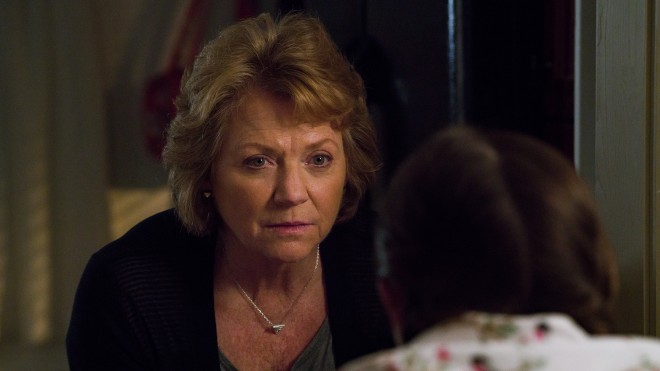
“Life is tough and whacking off is fine.” Seeya, Mama Loreen.
A lot of criticism of the show stemmed from its depictions of apparently unexamined privilege. These have often been valid; one of the most laughable developments in this final season wasn’t the idea of Hannah being a mother or even the fact that she called her son Grover, but that she’s a freelance writer and now single mother who’s paying rent on an adorable three-bedroom house in upstate New York by herself, before going to work in a teaching job with health insurance at a college despite not having finished her MFA or published anything offline aside from one New York Times column. (It’s also kinda telling that in the last five minutes of the show she’s a white lady having a pleasant and protective interaction with a cop despite clearly erratic behaviour.)
This kind of financial fantasy is a common narrative shortcut on TV shows, but it’s still genuinely disappointing that it wasn’t addressed even a little bit in Hannah’s anxieties about the future. Maybe that choice was out of convenience; maybe it was because Dunham and Jenni Konner and Judd Apatow just don’t have a sense of what the cost of living is. But while the show has rarely engaged directly with Hannah’s privilege, the wry awareness of it has permeated the show — particularly in the repeated emphasis on how easy it is for her to be a quitter.
She has supportive parents who may have cut her off but will still look after her even if she fails or slinks back with her tail between her legs. She can walk out of jobs, take risks, and choose “voice of a generation” as a career goal because she has not been confronted with how poverty actually feels.
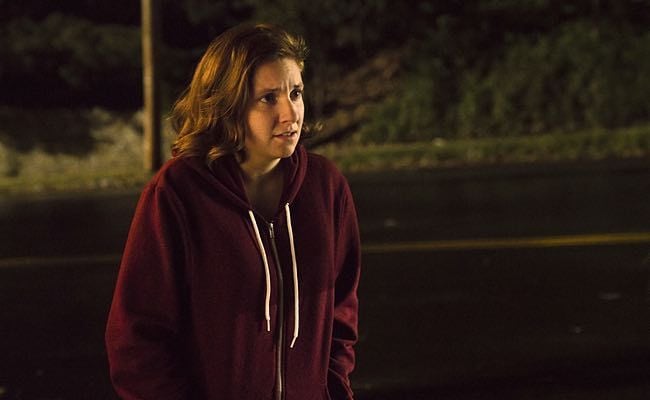
She can walk away from a beautiful home and give her pants to a stranger.
Hannah’s copped plenty of well-deserved tellings-off over the course of the show, though not nearly as many as she’s earned. Even with the birth of the baby and the five-month time jump, it still feels like a bit of a stretch to see her go from taking one of her students to get a piercing last season to the thorough, passionate, furiously maternal speech she gives the bewildered (and totally insufferable, even by the standards of this show) teenager in the climax of this episode — but the fact that she delivers it pantless, because she is stubborn and strange and essentially good-hearted, before walking home, still pantsless, with a police escort, is Hannah Horvath at her best.
“Quitter” is one of the ways she self-identifies, and as I’ve mentioned before, she’s got a solid history of giving up on stuff, so it’s a brilliant little bit of writing to tie that arc up with the series-long theme of being able to rely on herself instead of other people. She doesn’t want the lift home; she’s not the Hannah sending drop pins from the Navy Yard so Marnie can come and pick her up in a cab. She will shuffle home in her wet socks, dejected and exhausted, to her son (who she actually named Grover.) She doesn’t want to sit on the porch while other people look after her baby; she’s got this. It’s ok to accept help and love and support when you need it, but proving to yourself that you can stand on your own is one of the most strengthening feelings in the world.
“No, guys, I got it.”
And it’s a beautiful grace note to leave Loreen and Marnie’s stories with that same insistence: that letting others go and letting yourself be enough is a skill worth learning, even if it takes you 25 years. ‘Latching’ is a moody, wheel-spinning coda after the relatively resolved farewell to New York last week, which felt more like the finale of original-flavour Girls — with its Meaningful Dancing Scene and a pop song playing over the credits. This ending is not sexy or fun, but it is quiet and hopeful, as our last moments with Hannah is the image, then the sound of her son contentedly breastfeeding, with her murmuring scraps of ‘Fast Car’: “Be someone, be someone”.
If Girls teaches its fans — whether devoted or conflicted — nothing else, it’s how to look upon someone who can be self-sabotaging, self-indulgent, alienating, awkward and unlikeable, and still want them to overcome all that, to be a little better at this exhausting adulthood racket. Finding someone hopelessly, hilariously flawed and rooting for them anyway is a great skill to practice on TV characters so that you can be just as generous to yourself. You’ve got this.
–
Girls is available to stream now on Foxtel Play.
–
Caitlin Welsh is a freelance writer who tweets from @caitlin_welsh. Read her Girls recaps here.
